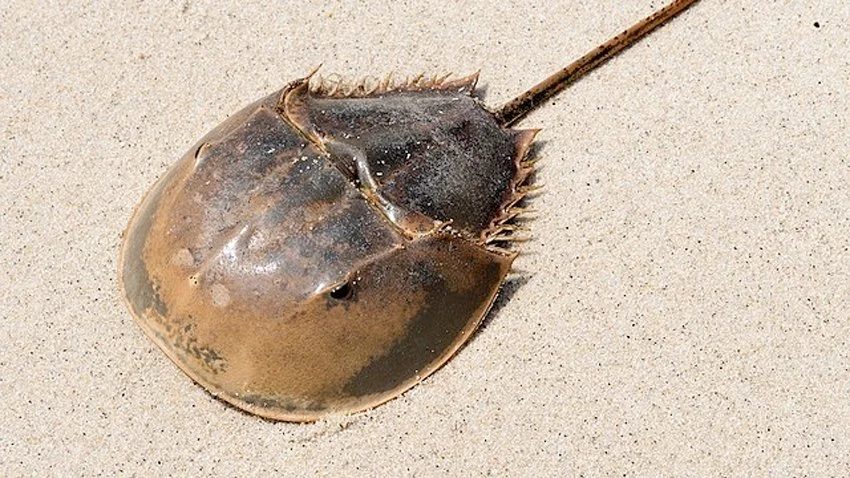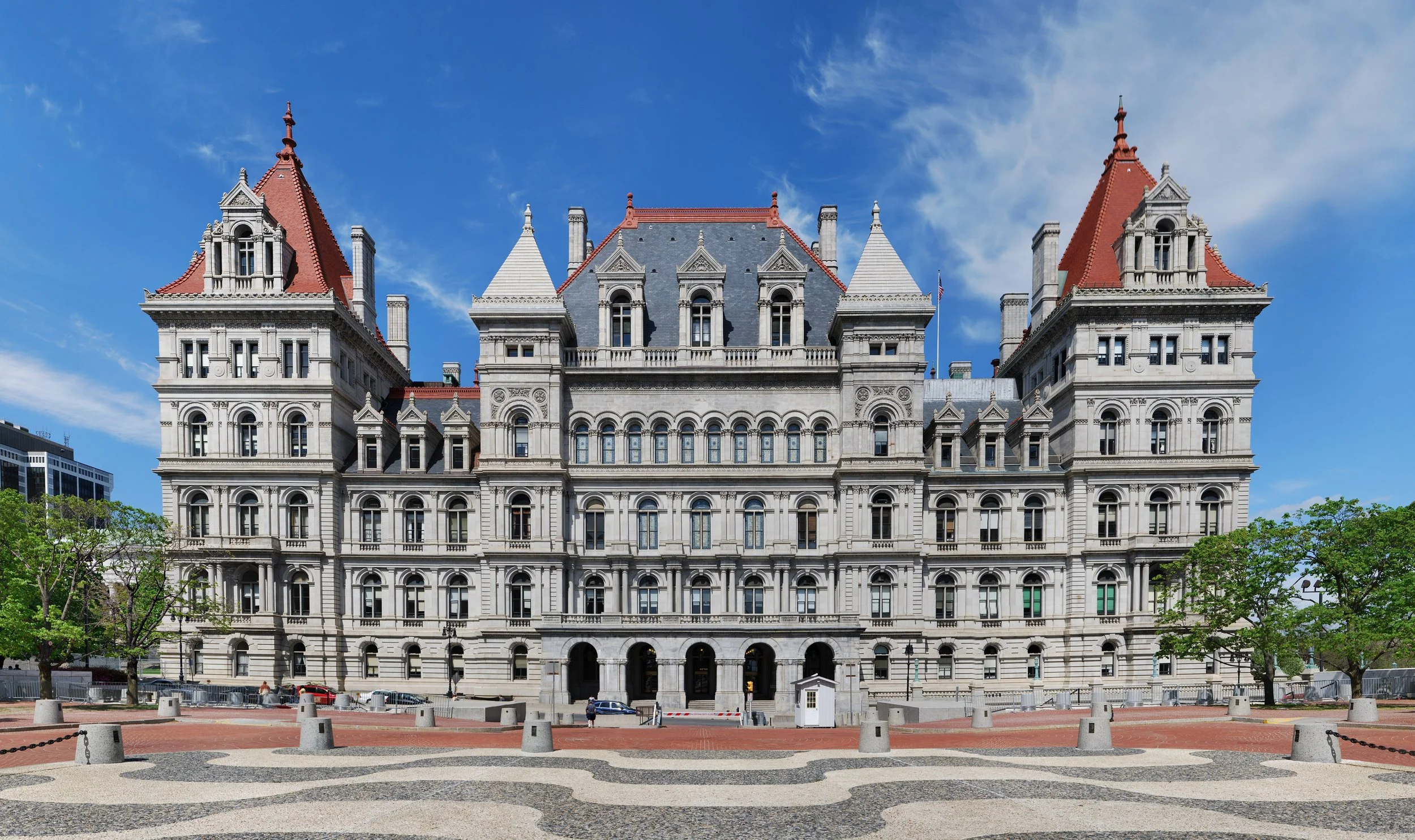CCE in the News
A federal judge granted Empire Offshore Wind a preliminary injunction as it legally challenged the U.S. Department of the Interior’s order directing a suspension of five offshore wind projects along the East Coast, allowing the company to resume construction as local laborers called out against the freeze.
The White House said in December 2025 that it would halt leases for five wind farms under construction off the East Coast, including two off the coast of Long Island, citing national security concerns.
The Long Island Power Authority CEO Carrie Meek Gallagher and Suffolk County, N.Y., Executive Ed Romaine announced a new partnership to evaluate the potential for large-scale solar energy development across major industrial areas in Suffolk County.
The Long Island Power Authority and Suffolk County have launched a new partnership to evaluate large-scale solar energy opportunities across major industrial areas in the county.
The project, announced Jan. 14 by LIPA CEO Carrie Meek Gallagher and Suffolk County Executive Ed Romaine, will analyze rooftop solar potential, grid capacity, and permitting processes in key commercial zones. A consultant will be selected through a newly developed Request for Qualifications process.
New York Gov. Kathy Hochul vowed this week to take "a hard look" at the environmental review steps developers must follow to have state and local governments approve new home-building projects.
The current review process hasn't been updated "in literally half a century," and, in its current form, it holds up the construction of affordable housing New Yorkers desperately need now, the governor said Tuesday in a State of the State address in Albany. The governor hinted that changes could be underway that would get housing construction projects approved much faster and more easily.
State environmental conservation officials have given Brookhaven Town an additional three months to recommend cleanup plans for a miles-long toxic plume emanating from the town landfill.
The Department of Environmental Conservation set a new May 1 deadline for finishing the report, which is expected to outline plans for cleaning up the landfill after groundwater testing in 2023 discovered so-called "forever chemicals" in the plume, which extends about 4 miles from Brookhaven hamlet south toward Bellport Bay.
New York state is taking legal action against the Trump administration for halting construction of five offshore wind farms. Friday, Gov. Kathy Hochul joined hundreds of workers whose livelihoods depend on projects already under construction.
Hochul on administration's explanation for pause: "It is BS"
NEW YORK (PIX11) – Developers of wind projects along the East Coast, two of them on Long Island, are escalating their battle against the trump administration’s freeze on further development.
They claim the projects pose a threat to national security. Governor Kathy Hochul joined union members in Hauppauge to lash out at Washington.
Gov. Kathy Hochul signed legislation that will ultimately ban the catch and biomedical use of the crabs.
New York State will phase out the catch of horseshoe crabs in its waters for bait and biomedical use over the next four years, beginning in 2026.
$1.1 Billion in Targeted Grants are Making Projects Affordable for Communities
New SFY 2025 Clean Water Funding Report Details Coordinated Efforts of Seven Agencies
Governor Kathy Hochul today announced the State’s $3.8 billion investment in local water infrastructure projects during State Fiscal Year 2025. A newly released New York State Clean Water Funding Report shows that New York delivered $1.1 billion in water quality grants in a single fiscal year, significantly reducing costs for local governments, families and businesses. Governor Hochul’s administration is providing unprecedented support to advance drinking water, wastewater and stormwater upgrades that are protecting public health and the environment, building community resiliency, improving quality of life and creating good-paying jobs.
Cleanup remedies at five Long Island hazardous waste sites "continue to be effective in protecting human health," the U.S. Environmental Protection Agency said this week, though some of the toxic areas need continued monitoring.
The agency conducted the federally mandated reviews at Superfund sites located in Glen Cove, Port Jefferson Station, Franklin Square and East Farmingdale. Across New York, New Jersey and Puerto Rico, 32 federal Superfund sites were appraised, which happen every five years, the EPA said.
Work on five offshore wind projects — including two located off the coast of Long Island — has been paused following an order from the Trump administration citing national security concerns.
The Trump administration on Monday renewed their campaign against two offshore wind projects in New York waters.
Citing unspecified national security risks, the U.S. Department of the Interior “paused” the leases for the Empire Wind and Sunrise Wind projects, both already under construction, plus three additional major offshore wind projects in other states.
Ms. Hochul had vetoed the Horseshoe Crab Protection Act last year, after concerns were raised by fishing industry representatives, but had a change of heart this year.
Gov. Kathy Hochul yesterday signed the Horseshoe Crab Protection Act, legislation that will phase out the taking of horseshoe crabs from New York waters for commercial and biomedical purposes over a three-year transition period, with a full prohibition taking effect in 2029, according to the bill’s lead Assembly sponsor, Deborah Glick.
NEW YORK — Environmental advocates are rejoicing after news that Governor Kathy Hochul has signed the Horseshoe Crab Protection Act, which will phase out harvesting horseshoe crabs from New York waters.
The Horseshoe Crab Protection Act prohibits the taking of horseshoe crabs from state waters for commercial and biomedical uses, environmental advocates said.
Testing is underway at dozens of Long Island schools after lead was found in the water in both Nassau and Suffolk counties. It comes after New York changed the acceptable levels of lead that can be found in school drinking water. NBC New York’s Greg Cergol reports.
Lead testing shows more than one-third of school buildings exceed the state's lead limit. CBS News New York's Carolyn Gusoff explains the numbers and what districts have to do next.
According to the state, more than 40 school districts in Suffolk County and over 20 districts in Nassau County have faucets or water fountains with lead levels exceeding the state’s newly enforced limit.
New data from the New York State Department of Health shows that dozens of Long Island school districts have tested positive for lead in their drinking water, prompting concerns among parents and advocates and requiring districts to take corrective action.
Water testing revealed elevated lead levels at several school buildings, prompting shutoffs, repairs, and plans to replace older fountains
The Farmingdale School District is notifying parents after recent testing found elevated levels of lead in drinking water at several school buildings.
Suffolk County Legislator Steven Englebright (D-Setauket) invited Citizens Campaign for the Environment co-founder Adrienne Esposito and CCE board and staff members to the Suffolk County Legislature’s Nov. 25th General Meeting to honor them for 40 years of advocacy. Presiding Officer Kevin McCaffrey (R-Lindenhurst) joined Englebright at the podium, where the CCE team received a proclamation along with flowers and balloons.
Low-oxygen areas in Long Island Sound dropped last summer to the smallest footprint recorded in nearly 40 years, according to data from Connecticut’s Department of Energy and Environmental Protection.
"This is great news," said Adrienne Esposito, executive director of Citizens Campaign for the Environment in Farmingdale. "This is what happens when you have reliable funding, meaningful collaboration, strong public support, and good science — all working together."
Will New York Governor Kathy Hochul sign or again veto a bill to protect horseshoe crabs that, by large majorities, passed again in the State Legislature earlier this year? Hochul vetoed the same bill last year.
A public advocacy group created a map showing how many water pipes are lead or may be made of lead.
New information is raising concerns about lead in Hudson Valley water systems.
In Brief:
Experts warn New York could face energy shortages as early as 2027.
Offshore wind offers clean, reliable power and price stability.
South Fork Wind Farm already powers 70,000 Long Island homes.
Upgraded transmission and new wind projects are urgently needed.
This fall, New Yorkers across the state showed up and spoke up to demand clean, affordable, reliable, safe and healthy energy infrastructure during the state’s energy plan hearings. Tragically, the Trump administration is wreaking havoc on our nation’s clean energy progress, making it more important than ever for New York to step up and lead the way to the sustainable, resilient system we need. Right now, we’re not on track.
New York State Department of Environmental Conservation (DEC) Commissioner Amanda Lefton today announced the release of the finalized Long Island Watershed Action Agenda (PDF). The Action Agenda is a clear-cut blueprint for water quality improvements, aquatic habitat conservation, groundwater protection, and the public engagement necessary to ensure success for the surface, coastal, and ground waters of Nassau and Suffolk counties.
The Suffolk County Water Authority (SCWA) has completed the first phase of one of their most ambitious projects in decades. The South River Road water main is set to bring clean water to residences in Calverton whose wells have been impacted by PFAS – otherwise known as “forever chemicals.”
Northport Harbor was the backdrop for a press conference on Tuesday, Oct. 7, at which a coalition of environmental groups asked Gov. Kathy Hochul to sign legislation to protect the horseshoe crab in New York State.
On Oct 7, representatives from 15 environmentalist groups gathered in Northport Harbor to rally for the Horseshoe Crab Protection Act (S.4289/A.4997), which would ban the harvesting of horseshoe crabs in New York for commercial and biomedical use. A study released last month, authored by Dr. Rebha Raviraj from Maritime Aquarime at Norwalk, showed a decrease of 2-9% in horseshoe crab populations in the Long Island Sound. At the event, Dr. Raviraj described the losses across the 46-year study as “very significant,” linking them to habitat loss, over-harvesting, insufficient management practices, and climate change.
Environmentalists are calling on New York state lawmakers to save the horseshoe crab.
Advocates rallied in Northport on Tuesday to urge Gov. Kathy Hochul to sign the “Horseshoe Crab Protection Act,” which would ban taking the animals from state waters for commercial or medical use.
An effort is afoot for the second year in a row to get New York Governor Kathy Hochul to sign a bill banning the harvesting of horseshoe crabs for bait and biomedical purposes.






